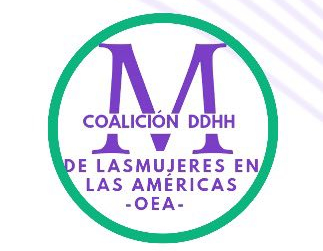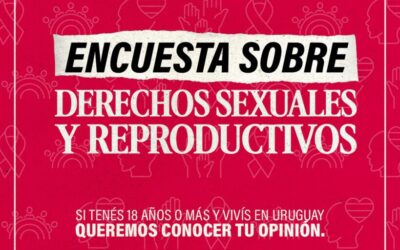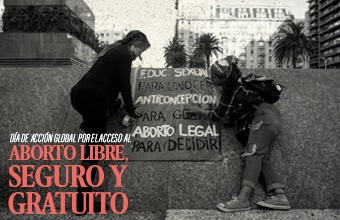On this 1st of December, World AIDS Day, Mujer y Salud en Uruguay (MYSU), together the signing civil society organizations of the Citizen Platform on Sexual and Reproductive Health and Rights, emphasize the link between gender based violence and HIV transmission, as well as the impact that both pandemics have on the health and lives of women.
Of the total number of people living with HIV in the world, 60% are children, adolescents and women (International AIDS Conference, 2012). The growing feminization of the HIV/AIDS epidemic is due to the various forms of gender inequality which impact most heavily on the lives of women and children who live in vulnerable conditions. This places them at greater risk of contracting the virus and limits their access to adequate treatment and care in the event that they do contract it. There is also a higher probability of women living with HIV/AIDS being abandoned by their families or partners, left destitute, beaten or even killed.
In Uruguay, HIV can be both a cause and a consequence of gender based violence: 38% of the HIV positive women interviewed by MYSU said they suffered sexual, psychological and/or physical violence following their diagnosis (MYSU, 2009). Out of these 100 women, 2% said that the reason they took the HIV test was because they had been raped, a reason which does not figure on the official application form to request an HIV test in healthcare services.
Our study on Uruguayan women’s needs in sexual and reproductive health (MYSU, 2012) revealed that 43% of the women interviewed do not control contraceptive methods for themselves and depend on their partners’ cooperation to use a condom. Consequently, it is crucial to promote and distribute the female condom, given that it is the only dual protection method controlled by women. It is also important that the female condom be widely distributed in all healthcare and educational institutions by various actors.
In Uruguay, these pandemics are treated through vertical interventions in which women are attended to either for their HIV status or for their situation of violence. The attention they receive does not tend to be comprehensive (MYSU, 2015). We see it as an urgent necessity to have comprehensive interventions in place which respond to the specific requirements of the women living these situations. Whilst the multidisciplinary teams do exist, these should play a central role in ensuring the interrelationship of both pandemics.
In order to reduce the spread of the HIV epidemic more work needs to be do done to promote care and self-care in sexual relations, as well as to reduce the incidence of violence against women in Uruguay. Coverage of and access to last generation antiretroviral drugs need to be ensured, as do the promotion and guarantees needed to lead a dignified life free from all forms of violence. Only then will be these two pandemics be defeated.
Montevideo, 1st of December 2015
Contacts for the press:
Lilián Abracinskas, Executive Director of MYSU: (+598) 099166665.
Maru Casanova, researcher for MYSU’s National Observatory on Gender and Sexual and Reproductive Health: (+598) 099170651.



